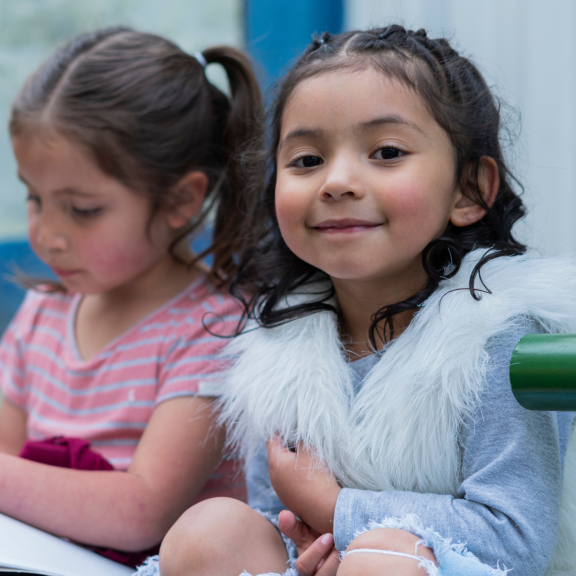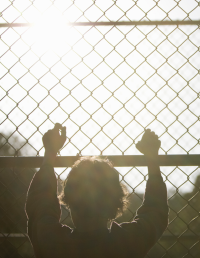With migrant youth still held in harmful conditions, attorneys call for extension of CBP settlement and independent monitoring
Customs and Border Protection continues to detain children separate from their families in border facilities without meeting their basic needs, despite a 2022 agreement to make key reforms
LOS ANGELES — Migrant children continue to be denied basic rights and detained in harmful conditions by U.S. Customs and Border Protection (CBP), despite the agency agreeing more than two years ago to implement several vital reforms. CBP's persistent noncompliance with the agreed-upon protocols from that 2022 settlement agreement warrant its continued enforcement beyond its planned termination in January 2025, according to attorneys representing migrant children.
CBP has never fully complied with the 2022 settlement agreement, which established a 2.5-year period to make critical changes at its Rio Grande Valley and El Paso facilities in Texas, according to attorneys with the National Center for Youth Law (NCYL), Children's Rights, and Center for Human Rights and Constitutional Law (CHRCL), who represent youth in federal immigration custody.
The Settlement’s appointed independent monitors have also found that CBP is not in compliance. The legal team filed a motion on December 20 in federal court that calls on Judge Dolly Gee to extend the settlement agreement for another 2.5 years, rather than allow it to terminate as scheduled on January 29.
The 2022 settlement clarified CBP's obligations under the Flores Settlement Agreement, which establishes a baseline of care for youth in federal immigration custody. It outlined several provisions, including extensive medical protocol requirements to address dangerously substandard medical care in custody, and provisions requiring that children be held with their families and have visitation if separated, have access to basic sanitation and hygiene; a child-friendly, trauma-informed environment; access to phones and legal service providers; and a caregiver program.
Attorneys for the children detained in federal immigration custody uncovered persistent violations of the settlement. One child told attorneys, “I don’t see the sun.” Another child said they are not allowed to play while in the pods and, if they do, CBP staff will yell at them or tell their parents to “control your kids.” Independent monitors have also reported CBP’s “persistent failure” to provide basic child-friendly materials to children in detention. All of these harms are particularly severe given the length of time children are held in CBP detention, which can be as long as two to three weeks.
"Without the 2022 Settlement in place, including independent monitoring, we have no reason to believe CBP will solve issues like unnecessarily separating children from their families," said Mishan Wroe, senior attorney at NCYL. "When the government decides to detain children in border facilities, it has an obligation to limit the lasting harm detention conditions can cause.”
“CBP is far from meeting its moral and legal obligations to children, and is certainly not ready for self-monitoring,” said Leecia Welch, Deputy Litigation Director at Children's Rights. “Without independent monitors and an extended settlement, children will be left at grave risk of harm. Now more than ever we need continued oversight and eyes on the ground at the border.”
The 2022 settlement also established a process for transitioning from independent third-party monitoring to self-monitoring by CBP. The court has already extended the independent monitor on three occasions due to CBP's lack of sufficient progress.
CBP has a long history of violating the 2022 settlement. Violations include:
- Routine separation of children from their families while in custody;
- Insufficient or no visitation for children separated from family members;
- Providing youth with insufficient clean, warm clothing;
- Holding children for days or weeks in windowless pods without outdoor access or activities;
- Limited or no access to phones or counsel;
- Insufficiently robust medical practices that can leave children without adequate care in urgent or high medical risk situations; and
- A fundamental lack of internal monitoring, oversight, and compliance enforcement by CBP
“Both the independent monitors and lawyers for detained children have now verified that CBP regularly keeps children in substandard conditions — denying them clean clothes, access to showers and basic hygiene, and separating them from their parents and other close family — for days on end,” said Sarah Kahn, Interim Director of CHRCL. “Such treatment is inconsistent with the Flores settlement, in which the federal government promised to 'treat, all minors in its custody with dignity, respect and special concern for their particular vulnerability as minors,’ as well as the Trafficking Victims Protection Act, which requires CBP to promptly place children 'in the least restrictive setting that is in the best interest of the child.’ CBP admits that it has still not put into place effective self-monitoring of its treatment of detained children. It therefore falls to independent monitors, children’s lawyers, and the court to ensure that vulnerable youth in CBP custody are treated humanely and in accordance with international norms.”






